 A Note on Diet and Autism…
A Note on Diet and Autism…
Diet is a notoriously difficult subject when it comes to autism treatment. While diet is an important part of any disease treatment protocol, many people with autism struggle to eat a balanced diet due to heightened sensitivity to smells, colors, and sounds, digestive upsets, and other factors. And, because autism exists on a spectrum, the dietary needs of one autistic person may be completely different than those of another. As such, I have chosen not to outline a specific autism diet, but rather to focus on the nutrients that can help treat autism. Still, I wanted to discuss diet briefly since there are some guidelines that can be helpful when designing a custom autism diet for your child or loved one.
Here are some things to consider:
- Encourage healthy eating! Whole, unprocessed foods are always best. Even if an autistic person only eats a limited range of foods, if those foods are high quality and free from toxic ingredients, such as artificial colorings and flavorings, preservatives, and refined sugar (to name a few), that can be significantly better than eating a wider variety of unhealthy foods.
- Some research suggests that certain foods, like gluten and dairy (from all animals, not just cows), may cause digestive upsets and increase autistic behaviors in ASD patients. Eliminating these foods from the diet of an ASD person, at least for a while, may help support recovery. If you MUST include gluten and dairy in the ASD person’s diet due to picky eating, make a point of choosing only whole grains (in the case of gluten) and grass-fed, organic dairy products, ideally from local farms. Avoid commercial bread products at all costs and opt for homemade or artisan baked options instead.
- Probiotic foods may also help support recovery, if the ASD person is open to eating these. Make these foods yourself at home, OR choose products with live cultures. Examples of probiotic foods include kombucha, sauerkraut and kimchi, yogurt, kefir, and pickled vegetables, to name a few.
- Strategize with the supplements below. Get liquid or powder forms of the nutrients below, or capsules that can be opened easily. Taste each of the supplements yourself, and then consider which favorite foods these supplements would work best with. Baked goods, smoothies, soups, and juices are some of the best foods to use to sneak in supplements.
Important Nutrient Supplements for Autism Treatment
One study that administered a complete nutrient supplement protocol gave autistic children a daily vitamin and mineral mix containing the following nutrients (NOTE: These dosages are for children weighing around 60lbs/27kg):- Vitamin A (as 85% beta-carotene and 15% palmitate) - 6500 IU
- Vitamin C - 500mg
- Vitamin D3 - 1000 IU
- NOTE: We do NOT recommend administering vitamin D3 as part of any autism treatment protocol, unless it’s given as part of a combination K2+D3 supplement.
- Vitamin E (as alpha-tocopherol + mixed tocopherols) - 150 IU + 100mg
- Vitamins K1 and K2 (amounts of each not specified) - 55mcg
- B-complex vitamins
- Thiamine (B1) - 20mg
- Riboflavin (B2) - 40mg
- Niacin (B3) - 35mg
- Pantothenic Acid (B5) - 30mg
- Vitamin B6 - 40mg
- Folate (B9) - 600mcg
- Vitamin B12 - 500mcg
- Biotin - 225mcg
- Choline - 250mg
- Inositol - 100mg
- Iodine (as potassium iodide only) - 100mcg
- NOTE: We recommend using Lugol’s iodine for autism treatment, since this type of iodine supplement contains both potassium iodide and molecular iodine in the appropriate ratio. The body needs BOTH of these forms.
- Lithium (type not specified) - 350mcg
- Calcium - 70mg
- NOTE: We do not advocate for calcium supplements, EVER. Please avoid supplementing with calcium.
- Magnesium - 100mg
- Zinc gluconate - 15mg
- NOTE: The supplementation protocol described in this study does not include copper. When taking zinc supplements for longer than 1 month, 2mg of copper should also be administered daily to avoid accidental copper deficiency (this is because zinc supplementation can lower copper levels in the body; supplementing with a small amount of copper takes care of this potential problem.)
- Selenium - 40mcg
- Manganese - 1mg
- Chromium - 70mg
- Molybdenum - 100mcg
- Potassium - 50mg
- MSM - 500mg
- CoQ10 - 50mg
- NAC - 45mg
- Acetyl L-Carnitine - 200mg
- Vanadium - 25mcg
- Boron - 250mcg
Between 1-3 capsules of a digestive enzyme supplement were given at snack times and meals; this enzyme supplement contained amylase, peptidase, glucoamylase, xylanase, proteases 4.5 and 3.0, amylase, invertase, alpha-galactosidase, lactase, and lipase.
Vitamin C Supplements for ASD
Vitamin C doesn’t generally play a central role in autism treatment, but is still worth mentioning since vitamin C has profound healing benefits for people of all ages. This vitamin supports collagen production, bone and tissue formation, neurotransmitter production, immune function, and a healthy, balanced inflammatory response. In the treatment of autism specifically, vitamin C may be valuable in that it helps metabolize tryptophan and tyrosine, and therefore also helps boost serotonin levels. Vitamin C is a particularly helpful supplement for autistic people who have iron deficiency since it improves iron absorption. Some ASD patients may also benefit from vitamin C supplementation to reduce inflammation throughout the body.Vitamin C is a very safe nutrient supplement to take, regardless of a person’s age or weight. Whatever your body doesn’t need will simply be excreted. Extra high doses of vitamin C can sometimes provoke diarrhea, but this will stop if you stop taking the vitamin C right away. In fact, this means you went just beyond the “loading dose”. When following a high-dose vitamin C protocol (which may be valuable for some autistic individuals), start by taking 500-1000mg of vitamin C every 30 minutes until you feel your intestines move. Then stop. This is your “loading dose”, and the amount that you’ll need to take each day in order for the vitamin C to provide therapeutic value.
Low-dose, or maintenance dose, vitamin C can be taken at a dose of 500-3000mg per day. Most teenagers and adults tolerate this dose of vitamin C well. Of course, children should receive a lesser dose; babies can take pure ascorbic acid powder, but acerola cherry provides an alternative option for maintenance dosing. If your autistic child or loved one has a particularly limited diet with few fruits and vegetables, a vitamin C supplement may prove to be essential.
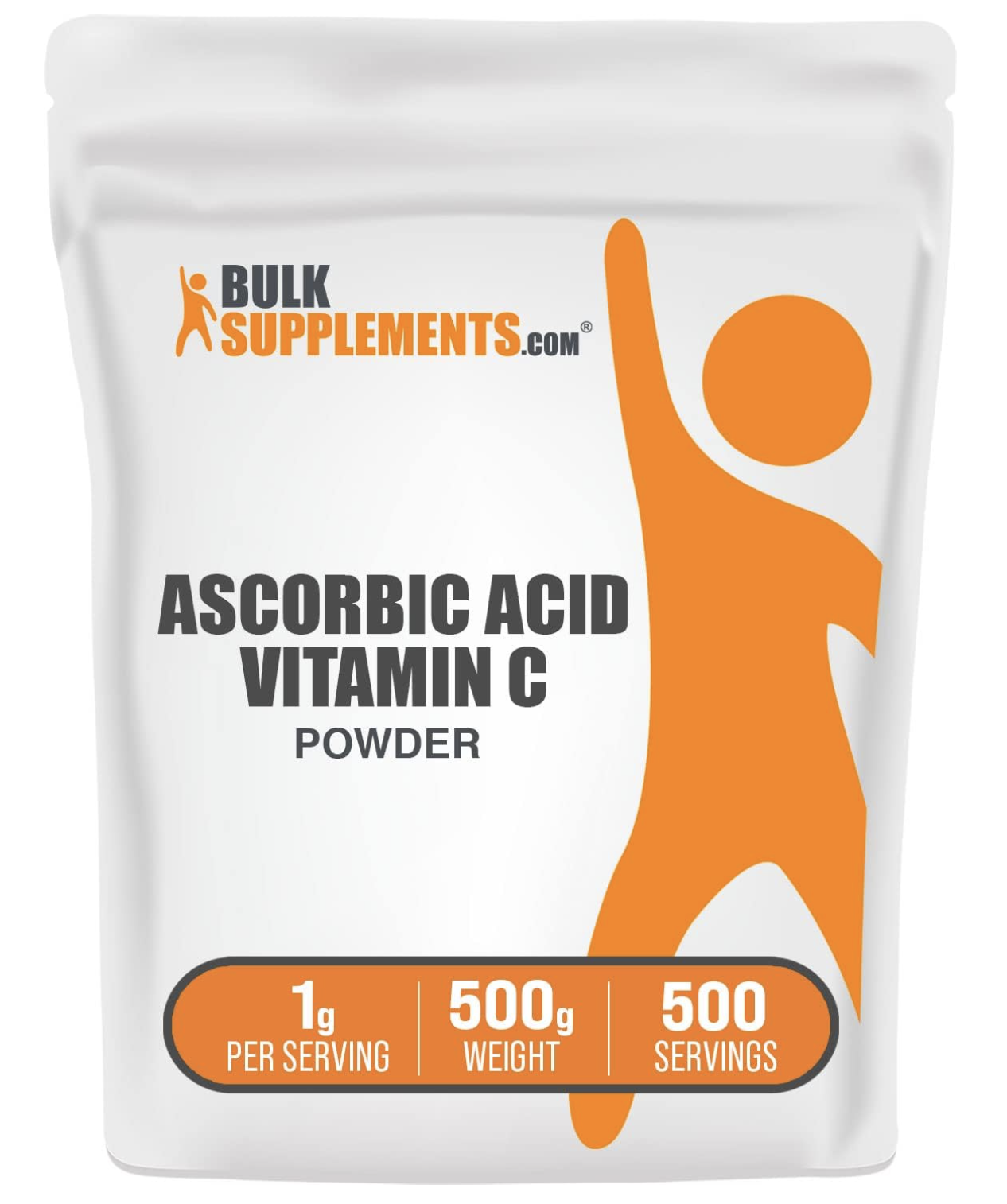 Buy 100% Ascorbic Acid (Vitamin C) Powder Here.
Buy 100% Ascorbic Acid (Vitamin C) Powder Here.
Zinc + Copper Supplements for ASD
Zinc is an extremely important mineral for patients with any kind of neurological condition, including those with autism spectrum disorder. Patients with ASD commonly have zinc deficiency, as well as excess copper levels; as such, I’m suggesting that ASD patients should get a supplement containing only zinc for the first month of treatment, and then from then on that they should take a combined zinc+copper supplement. My reasoning on this is that taking the plain zinc supplement for the first month would help correct the zinc deficiency without accidentally increasing copper levels at the same time, but after this first month, the addition of a small amount of copper in a combined zinc+copper supplement will help prevent the future development of a copper deficiency (since higher dose zinc supplements are known to deplete copper levels).Zinc is heavily involved in cell signaling, enzyme function, DNA growth and metabolism, tissue growth and repair, and cellular repair. It has also been found to play an important role in regulating the GABA and glutamate systems in the nervous system. While the effects of zinc deficiency are far-reaching, some of the relevant neurological effects of this nutrient deficiency include emotional instability, irritability, depression, and impaired cognitive performance. Meanwhile, accompanying excess levels of copper can lead to symptoms like depression, irritability, nervousness, fear, learning disorders, and behavioral disorders.
Zinc and copper both play a role in metallothionein production and function. These proteins (which also contain cysteine) are important specifically for the detoxification of heavy metals in the body, including in the detoxification of mercury. It’s worth noting that metallothionein production that happens as a result of copper toxicity, oxidative stress, or the presence of heavy metals can actually lead to zinc deficiency by inhibiting intestinal absorption of this mineral and interfering with its mobilization from the liver. This, of course, is a somewhat recursive thought, but one worth considering when it comes to nutrient therapies for autism.
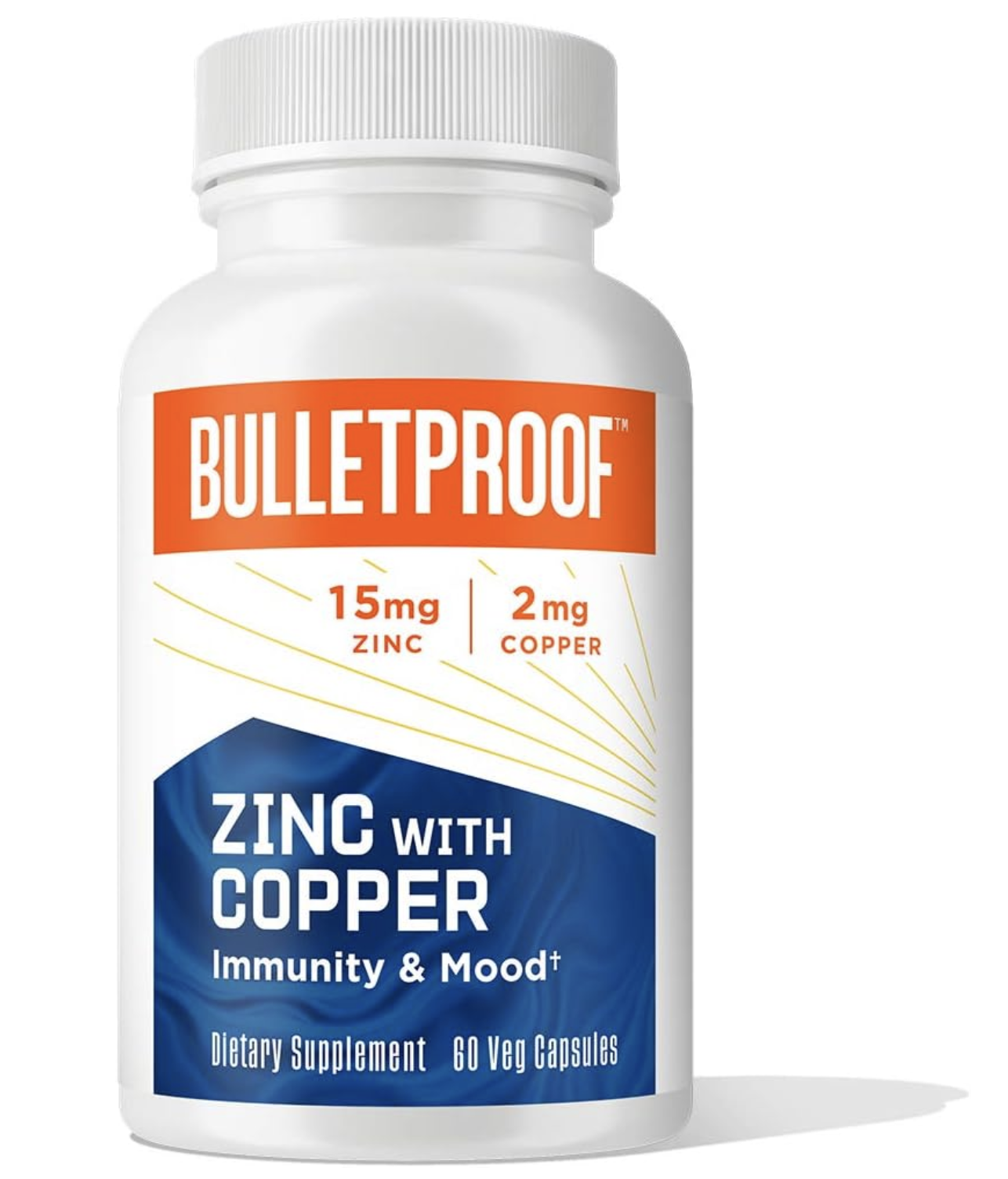 Buy a Zinc + Copper Supplement Here.
Buy a Zinc + Copper Supplement Here.
Omega-3 Fatty Acids for ASD
Omega-3 fatty acids are anti-inflammatory and are known to support brain and nervous system health and development. Notably, research has shown that patients with specific mental health conditions, including autism, schizophrenia, dementia, ADHD, depression, and bipolar disorder, have decreased levels of Omega-3 fatty acids. Other studies have observed that supplementation with Omega-3’s can be especially beneficial for people with these health problems. In patients with autism, Omega-3 fatty acids can help specifically improve social interaction and reduce restricted interests and behaviors.During pregnancy, low Omega-3 consumption (specifically of DHA) has been shown to increase the risk of poor visual and neural development in babies. As such, Omega-3 supplementation (such as via a high-quality cod liver oil supplement) may help prevent the development of autism and related health problems in newborns. One study also found that supplementation with Omega-3’s can improve outcomes in infants with Rett’s syndrome, a condition that often includes autism symptoms.
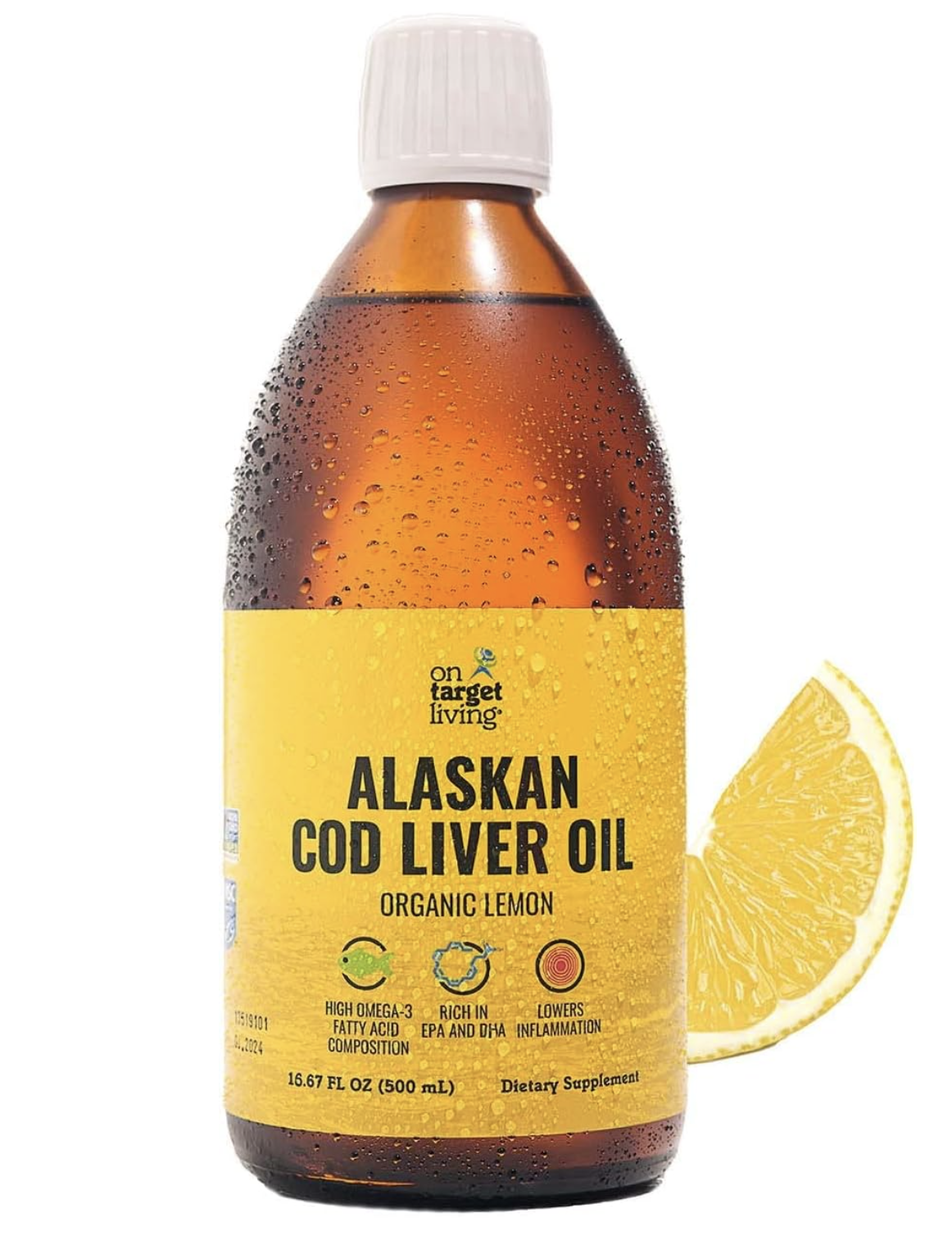 Buy Alaskan Cod Liver Oil Here.
Buy Alaskan Cod Liver Oil Here.
Autistic patients with gastrointestinal issues may benefit from Omega-3 fatty acid supplements not only in terms of cognition and mood, but also in terms of GI health. Studies have shown that Omega-3 supplementation in patients with Crohn’s disease can reduce the relapse rate of this condition. Omega supplements can also help correct the low levels of Omega-3 fatty acids often found in patients with Crohn’s disease and other related gastrointestinal conditions.
Some common food sources of the Omega fatty acids are listed below (a healthy diet should, ideally, contain a variety of foods that supply all of these fatty acids):
- Omega-3 Fatty Acids
- Fatty fish (cod liver oil is a good source of Omega-3’s)
- Chia seeds
- Flax seeds
- Walnuts
- Omega-6 Fatty Acids
- Eggs
- Avocados
- Nuts
- Tofu
- Omega-9 Fatty Acids
- Cashews
- Almonds
- Olive oil
- Avocado oil
Below are the Daily Recommended Intake amounts of Omega-3’s for children. Start with a lower dose and see how your child responds to the doses below; if possible, double the doses listed below for best results.
- Ages 1-3 - 700mg/day
- Ages 4-8 - 900mg/day
- Ages 9-13 - 1000mg/day for girls, 1200mg/day for boys
- Ages 14+ - 1100mg/day for girls, 1600mg/day for boys
In one study, autistic patients were also given between 2-4 capsules of an Omega fatty acid supplement containing 609mg of Omega-3’s (as 425mg of EPA, 110mg of DHA, and 74mg of other Omega-3’s), 198mg of Omega-6’s, and 15mg of Omega-9’s. Although the participants in the study were given all three different Omega fatty acids, the Omega-3 fatty acids are most important for autism treatment. A whole-food type supplement, such as cod liver oil or fish oil (without added vitamins, check the labels!), is ideal for Omega fatty acid supplementation because these contain balanced ratios of all of the Omega’s, in addition to other essential nutrients like vitamin A, vitamin E, and vitamin K2.
Note that cod liver oil is a great source of Omega-3’s, as well as a source of vitamin A and vitamin E, which I’ll discuss briefly below in terms of how these two fat-soluble vitamins benefit patients with autism. Cod liver oil can easily be added to smoothies, salad dressings, or even some dips, and is also available in capsule form.
Vitamin A for Autism
Up to 78% of autistic children are likely to have a vitamin A deficiency. As a fat-soluble vitamin, vitamin A of course plays an important role in cellular communication through the formation of healthy cell membranes, as well as in cell growth, immune function, vision health, mucus membrane health, and the health of bones and soft tissues.Vitamin A has also been found to help reduce excess 5-HT (5-hydroxytryptamine) levels in children with autism down to normal levels. Autistic patients often have unusually high levels of serum 5-HT, which can lead to worsened repetitive behaviors, irritability, aggression, and generally worse autism symptoms. One study found that the administration of vitamin A supplements was able to reduce 5-HT levels and subsequently significantly improve autism symptoms.
Vitamin A should ideally be taken either as beta-carotene or in the form of cod liver oil. While retinol supplements can be powerful in correcting a true deficiency, beta-carotene and cod liver oil are generally safer options for supplementing with this nutrient.
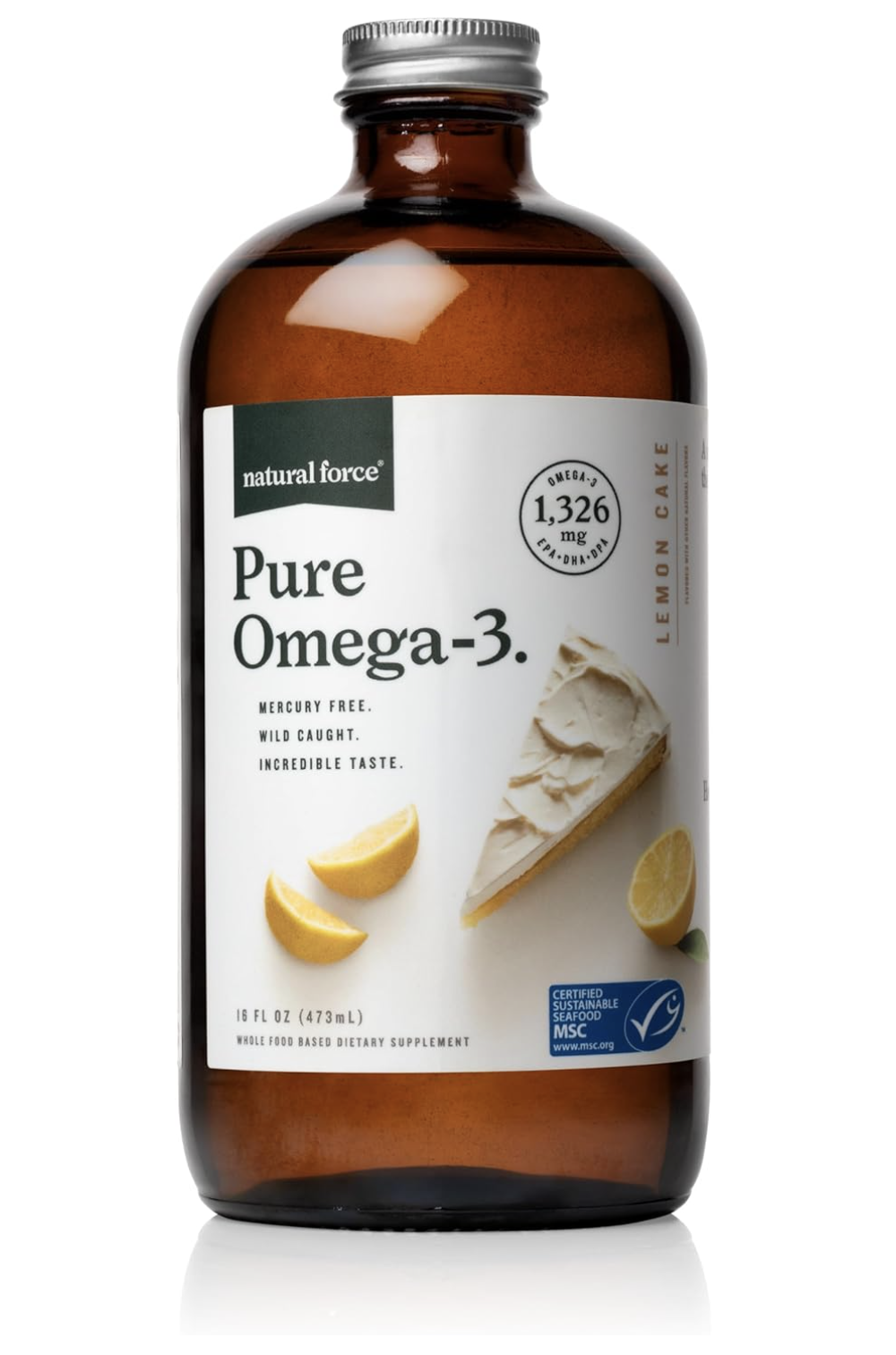 Buy Lemon-Flavored Fish Oil Here.
Buy Lemon-Flavored Fish Oil Here.
Vitamin E for Autism
In people with autism, vitamin E deficiency is relatively common. Indeed, some research noted a direct connection between low blood levels of vitamin E and autism-like behaviors. As an antioxidant and anti-inflammatory nutrient, vitamin E may pose similar benefits for ASD patients as vitamin C, NAC, and glutathione specifically. Vitamin E has also been found to help stabilize glutamate receptors in the brain and nervous system as well as to decrease excess glutamate-induced excitotoxicity in the brain.A deficiency in vitamin E and Omega-3 fatty acids has previously been linked to verbal apraxia not only in ASD patients, but also in people with ADHD, dyslexia, and other similar developmental disorders. Supplementation with vitamin E as d-alpha tocopherol (not as synthetic d-l-alpha tocopherol!) or with cod liver oil can help improve the symptoms of verbal apraxia, as well as of symptoms like poor eye contact, coordination issues, sensory problems, and behavioral disorders.
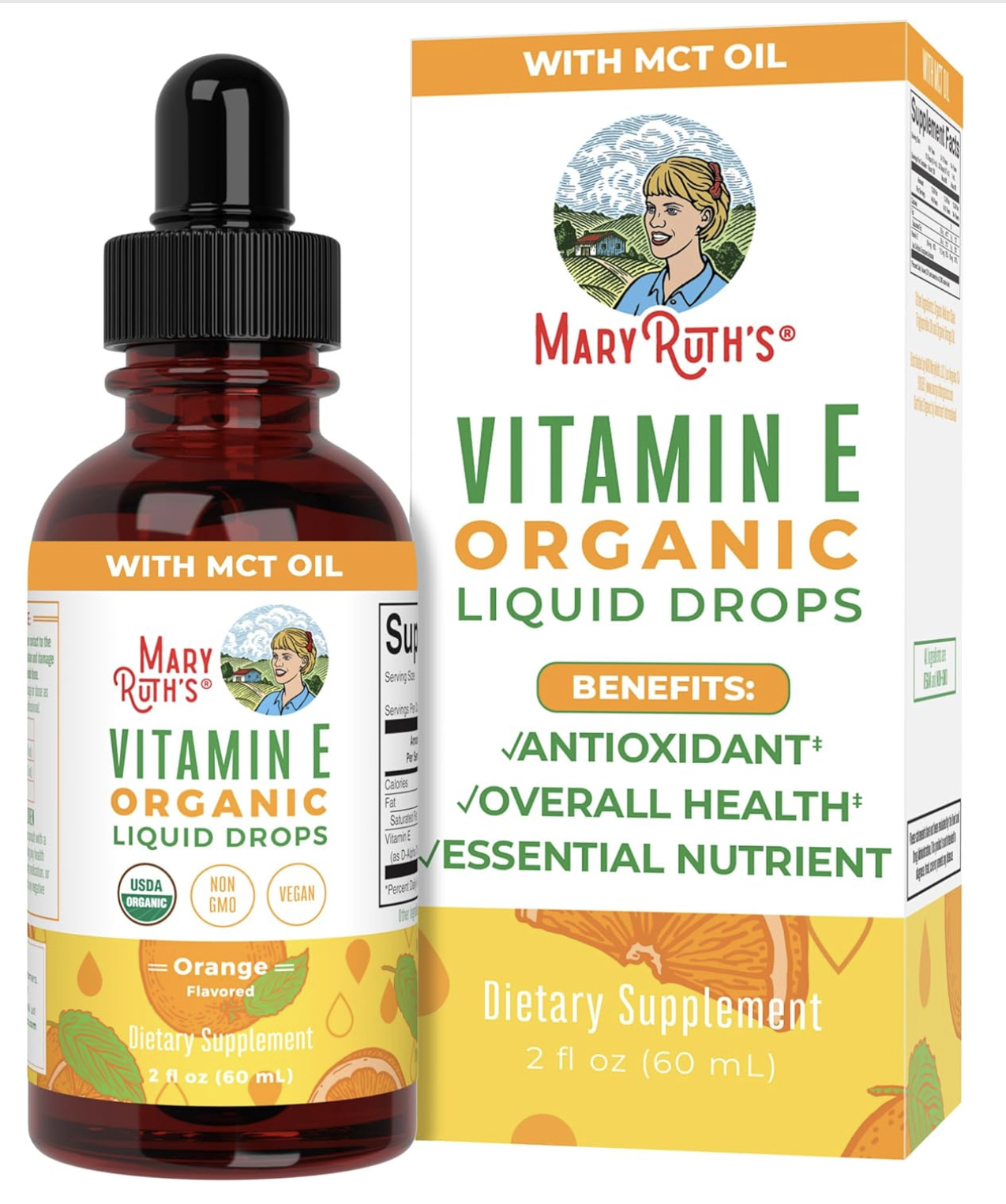 Buy Mary Ruth's Vitamin E Drops Here.
Buy Mary Ruth's Vitamin E Drops Here.
Sample Supplementation Protocol for At-Home Autism Treatment
The protocol below contains dosing information for teenagers 14+ and adults. Please adjust the doses accordingly based on your child’s age and bodyweight (consider that the average weight of an adult is approximately 150 pounds to make these calculations). Also, note that this is a sample supplementation protocol containing only the most important autism treatment nutrients; you may prefer to add in certain other relevant supplements, or take out certain other ones based on the individual needs of your child or loved one.- B-Complex Vitamins (choose a B100 supplement OR individually select products with these specific B-complex vitamins)
- Thiamine (B1) - 100mg/day
- Riboflavin (B2) - 40mg/day
- Niacin (B3) - 100-3000mg/day
- Vitamin B6 - 25-50mg/day
- Methylfolate - 600-1200mcg/day
- Vitamin B12 (sublingal) - 1000mcg/day
- Choline - 500mg/day
- Inositol - 100mg/day
- Vitamin C - 500-3000mg/day
- Vitamin K2 - 100mcg/day
- Lugol’s Iodine - 20 drops of Lugol’s 2% per day (infants and children should receive 1 drop of iodine per year of age)
- Boron - 3mg/day
- Lithium Orotate - 5-60mg/day (in divided doses)
- Magnesium - 400mg/day
- Zinc Gluconate - 15mg/day
- Add 2mg of Copper after 1 month of following this supplementation protocol.
- Selenium - 200mcg/day
- Iron (as Ferrous Gluconate) - 15mg/day
- Molybdenum - 100-500mcg/day
- CoQ10 (as Ubiquinol) - 200-400mg/day
- N-Acetylcysteine (NAC) - 1000-3000mg/day
- Cod Liver Oil - 1-2 tablespoons per day
- L-Carnitine - 1000-3000mg/day
- Sea Water Supplement - Add 1 teaspoon to each 8 ounce glass of water
Resources:

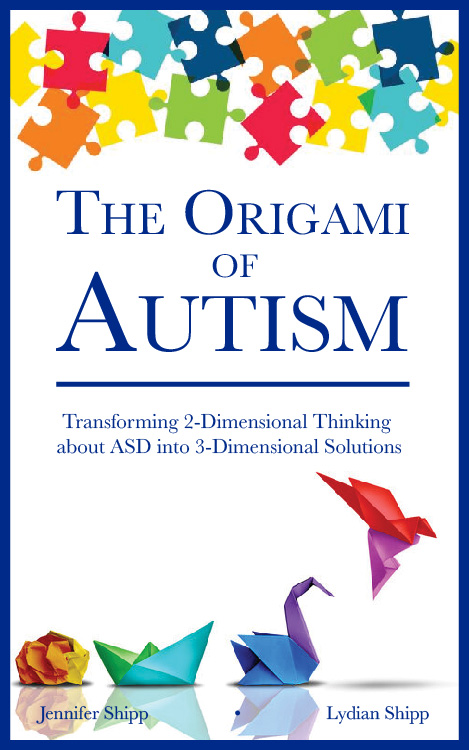 The Origami of Autism: Transforming 2-Dimensional Thinking about ASD into 3-Dimensional Solutions - BUY HERE!
The Origami of Autism: Transforming 2-Dimensional Thinking about ASD into 3-Dimensional Solutions - BUY HERE!











